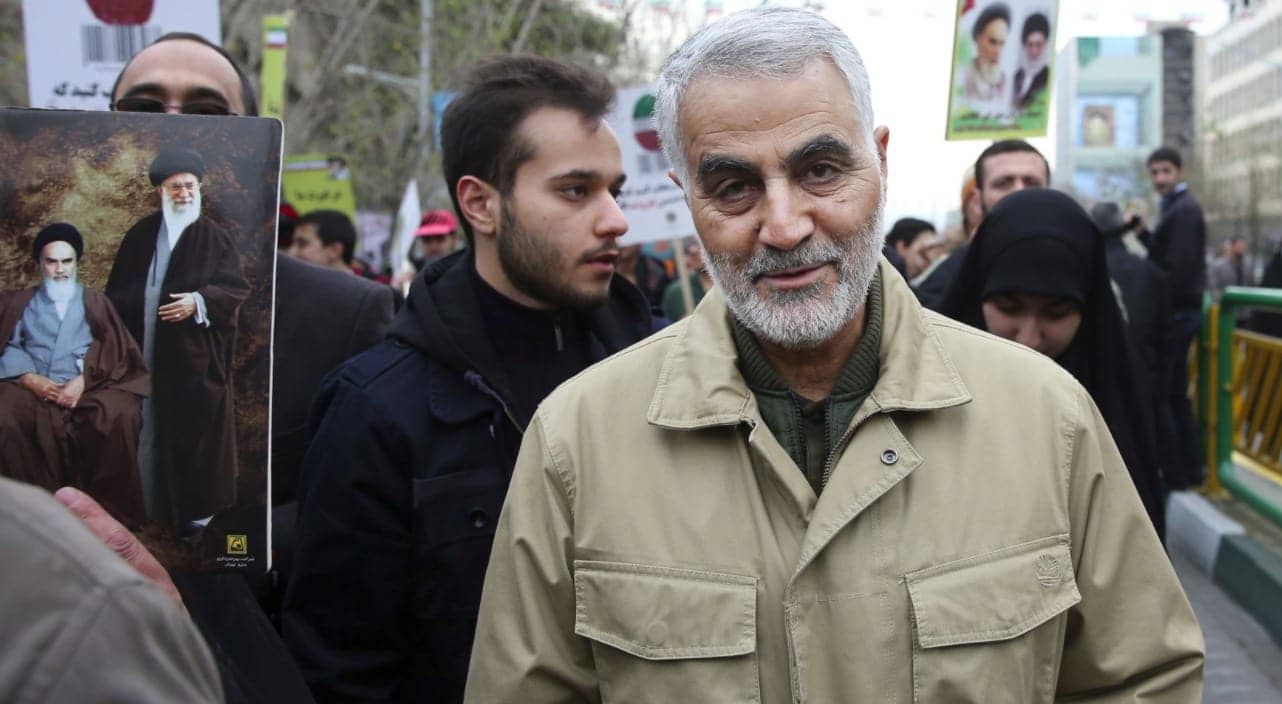
by Mohammed Khaku
The year 2020 has been completely disastrous. The year started with a horrific crime committed by Donald Trump with the assassination of Gen. Qassem Soleimani. The crime can never be forgotten. Iran has every right to pursue justice to bring these criminals and their accomplice to justice.
Why commemorate the death anniversary of Qassem Soleimani?
The remembrance of his death anniversary is an important time to look back, reflect and reaffirm the struggle of oppressed people. Personally, what comes to mind is his legacy of courage, integrity and siding with oppressed people.
Soleimani was a person of great humility, self-confidence and eschewed egotism. In times of hardship and challenges, he saw opportunities and never backed down. Soleimani’s place in history is still unfolding and his work of liberating Jerusalem still remains unfinished. He is a global icon whose faith and strategy define him as a general of the Al Quds (Jerusalem) force.
On Jan. 3, Iran and oppressed people around the world will observe the first anniversary of the assassination of Soleimani. A handsome face with dreamy eyes, he was a revered figure among not only the Al Quds (Jerusalem) force but all through Middle East. The martyrdom of the top general of Iran was a conspiracy to further destabilize the Middle East and start a war with Iran.
He is more alive in his legacy and martyrdom today than he ever was. No words are sufficient to express the legacy of Soleimani. His martyrdom has created numerous Soleimanis, from Kashmir to Palestine.
The memory of Gen. Soleimani’s death will remain immortal in the history of all mankind. The martyrdom and the tears that roll down our cheeks are for the oppressed people, be it in Palestine, Kashmir, Yemen, Myanmar or China. These tears are the tears of revolt and challenge to the tyrants of the world. This assassination has branded the mark of disgrace upon the forehead of all oppressors and oppressive governments.
Soleimani grew up in a village in Kerman Province, bordering Afghanistan. His father was a small-time farmer, indebted due to the “modernization” of the Shah’s policies. With the family facing debt, young Soleimani dropped out of school at 12 to labor in the construction industry. He joined the Islamic Revolutionary Guards Corps (IRGC) at a very young age and was sent to the Northwest to suppress a Kurdish separatist uprising.
Soleimani served throughout the eight years of war with Saddam Hussein in 1980, specifically in retaking Bostan in December 1981 and the invasion of Iraqi Kurdistan in 1987, where his unit encountered Saddam using chemical weapons sourced from the US and Europe.
Soleimani’s role in the Middle East was to help reshape the new order of resistance, seen as a beacon of strength for Muslim countries like Lebanon, Yemen, Iraq and Syria and a liberator from the clutches of the Western powers.
Following the end of the Iraq war in 1988, Soleimani was sent back home to Kerman to wage war on the drug gangs from Afghanistan and Taliban threatening order in the region. After years of insurgent warfare, his forces pacified the province, earning him the lasting gratitude of its residents. By March 1998, he had risen to commander of the Quds Force, the lethal special forces unit of the IRGC.
Soleimani is one of the heroes and a righteous son in the history of the Islamic republic, standing in defiance against the US and Zionist Israel. He was the most revered, respected and charismatic military general. He was loved and admired by all oppressed people around the globe, especially Palestinians, Yemenis and Kashmiris.
Soleimani’s role in the Middle East was to help reshape the new order of resistance. He was a hero, seen as a beacon of strength for Muslim countries like Lebanon, Yemen, Iraq and Syria; a liberator from the clutches of the Western powers.
Qassem Soleimani was the principal architect and played a significant role in the fight against ISIS in Iraq and Syria. He was described as the key player in bringing together Kurdish and Shia forces to fight ISIS in Mosul.
Soleimani and his forces played a major role in the victory of Fallujah, Mosul, Kirkuk and Aleppo, which US forces could not “liberate.” He was so revered for his talent and wisdom on the battlefield and so feared by ISIS and the US that he earned a mythical status among his enemies, becoming idolized by Muslims from Palestine to Yemen.
Soleimani has been responsible for the formation of an arc of unity and resistance from Beirut to Damascus, from Iraq to Yemen. Soleimani out maneuvered the US in Syria and Iraq, hastening the decline of the US presence in the Middle East. He has restored long-lost Muslim pride, self-confidence and unity among the people of the Muslim world.
The most courageous general of the Al Quds force avoided publicity or media, and when meeting with freedom fighters to ayatollahs to the dignitaries of the world, he preferred to remain quiet. But when he spoke, he was soft-spoken and polite, rarely raising his voice. He was so modest he would not allow his admirers to kiss his hand or forehead as is customary in Iran and the Middle East.
Mohammed Khaku lives in Allentown, Pa., and can be reached by phone at 610-737-2721.





